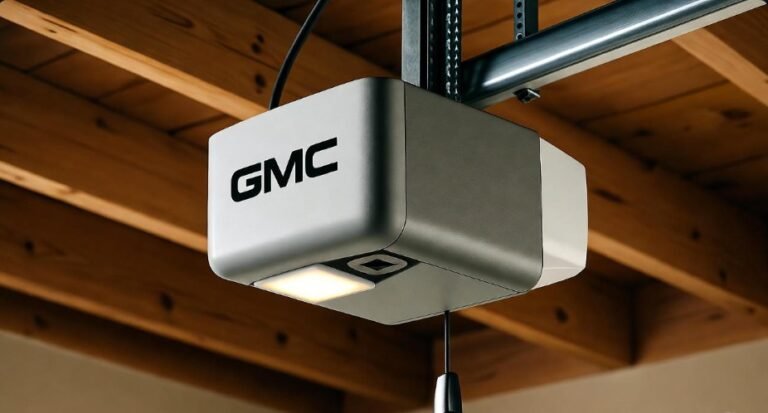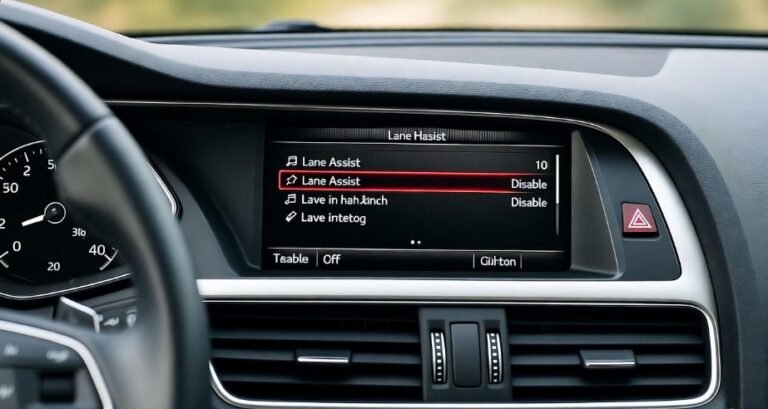Can Oil Cause Your Car Not to Start?

We’ve all been there—turning the key in the ignition or pushing the start button only to be met with… nothing. A dead silence, maybe a weak click. And in that moment, panic sets in. Is it the battery? Did I leave the lights on? But here’s a surprising twist: can oil cause your car not to start? The answer is more layered than a simple yes or no. Today, we’re diving into this surprisingly common issue that often goes overlooked.
This guide breaks down the unseen connection between engine oil and your car’s starting ability. We’ll look at how oil affects your car’s heart—the engine—and the ripple effects when things go wrong. Using real-world insights, we’ll talk through scenarios, root causes, and what you can do to avoid being stuck in your driveway again.
The Basics: How Engine Oil Impacts Starting Power

When I first experienced this myself, I thought the starter was dead. But after some troubleshooting, a quick look at the dipstick showed nearly bone-dry oil levels. Topped it off, waited a bit, and boom—the engine roared back to life. That moment taught me to never ignore oil again.
Here’s why oil matters so much for starting:
-
Oil reduces friction between engine parts
-
It helps maintain proper compression
-
Oil prevents overheating in moving components
-
Some modern engines have sensors that block ignition if oil pressure is too low
So yes, oil can cause your car not to start, especially in high-tech cars that protect themselves from damage.
Can Low Oil Pressure Prevent Your Car From Starting?
Absolutely. Many newer vehicles have oil pressure sensors tied directly to the ignition system. When oil pressure is too low, your car’s computer might prevent ignition altogether to avoid burning out the engine. It’s a safety feature, but it can also leave you confused at the worst times.
Think of it like your body refusing to run when you’re dehydrated. That built-in survival mechanism is helpful—but confusing when you don’t know what’s happening. Similarly, low oil pressure may not give you a flashy dashboard warning. Instead, your car just doesn’t start.
In some cases, you might hear a few cranks. But in others, especially with electronic starters, it’ll be dead silence. This is why checking your oil level is one of the first things you should do when your car refuses to start.
Let’s look at what low oil pressure can trigger:
-
Inability to crank or turnover
-
Triggered limp mode or kill-switch system
-
Sensor alerts that prevent ignition
-
Oil pressure warning light (not always immediate)
So, if you’re asking yourself, can oil cause your car not to start, you now know—low oil absolutely can, and it’s more common than most people think.
Thick or Dirty Oil Can Also Be a Silent Culprit
Let’s say your oil isn’t low—but your car still won’t start. Here’s another possible cause: your oil is too thick, or worse, dirty sludge. Dirty oil doesn’t flow as it should. And when it sits for long periods or hasn’t been changed, it becomes thick like molasses in winter.
This thick oil struggles to reach essential parts of the engine, causing excess friction, poor lubrication, and low compression. That combo can definitely stop an engine from starting.
A close friend of mine once left his car sitting in a cold garage all winter. When he tried to start it in the spring, nothing happened. Turns out the oil had become so viscous in the cold that it couldn’t circulate properly. After an oil change? The car ran just fine.
Signs your oil might be too thick or dirty:
-
Long periods between oil changes
-
Dark, sludgy oil on the dipstick
-
Engine cranks slowly or not at all
-
Car has been sitting unused for weeks or months
Using the wrong viscosity oil can also be a problem, especially in cold weather. Always use oil that matches your manufacturer’s spec—usually listed on the oil cap or owner’s manual.
The Role of the Oil Filter: The Unsung Hero

In many modern vehicles, a clogged filter can also trip oil pressure sensors, preventing the engine from starting. It’s like trying to drink a smoothie through a straw filled with peanut butter—it’s just not going to work.
What’s more, a dirty oil filter can cause a delay in oil reaching vital engine parts. So even if your oil is clean and full, the filter can still be the problem.
If your car won’t start after an oil change, don’t overlook the oil filter. Sometimes the wrong filter was installed, or it wasn’t tightened correctly, leading to pressure loss.
Things to watch with oil filters:
-
Poor-quality or incompatible filters
-
Clogs due to overdue oil changes
-
Improper installation during maintenance
So when someone asks, can oil cause your car not to start, the answer can include the oil filter, too.
Extreme Temperatures and Oil Behavior: A Hidden Threat
If you’ve ever tried starting your car in freezing temperatures and got nothing but a slow groan, you’re not alone. Cold weather affects engine oil more than most people realize. Oil thickens when it gets cold. And when it’s thick, it moves slower—too slow to lubricate engine parts on startup.
In extremely hot weather, oil can thin out too much, reducing its ability to protect engine parts. That might not stop your car from starting right away, but it increases long-term damage. And ironically, some cars may enter a no-start condition if oil pressure drops in these hot climates.
For instance, synthetic oil performs better in extreme conditions. It resists thickening in the cold and thinning in heat. So if you’re in a region with dramatic seasonal changes, your choice of oil matters big time.
Tips for weather-related oil issues:
-
Use multigrade oil (like 5W-30) in colder climates
-
Consider synthetic oil for extreme conditions
-
Warm your car briefly before starting in freezing temps
-
Avoid leaving cars idle for long stretches in winter
So yes, even temperature changes can make it so oil causes your car not to start, especially if the oil isn’t the right type for the season.
What Happens When You Overfill Engine Oil?
Here’s a curveball most people don’t expect: too much oil can also stop your car from starting. Overfilling causes excessive pressure inside the engine, which can lead to aeration—air bubbles mixing with the oil. These bubbles interfere with oil’s ability to lubricate properly.
In severe cases, overfilling can flood spark plugs with oil, destroy gaskets, or even hydrolock the engine. Hydrolocking happens when oil fills the combustion chamber, preventing pistons from moving.
Once, after a rushed oil top-up, I noticed the engine hesitating on startup. It turned over but stalled quickly. Turned out I had added too much oil. A quick drain to the right level fixed it. So more isn’t always better when it comes to oil.
Overfilled oil can cause:
-
Difficulty turning over the engine
-
Engine warning lights
-
Smoke from the exhaust
-
Damage to spark plugs or sensors
Always double-check your oil level after adding or changing it. Use the dipstick, not just estimates.
Common Oil Issues That Can Prevent Engine Start
| Issue | Effect on Starting | Fix |
|---|---|---|
| Low oil level | No start, safety lockout | Add proper oil |
| Thick or dirty oil | Poor compression, friction, no turnover | Perform oil change |
| Clogged oil filter | No oil flow, low pressure | Replace filter |
| Wrong oil viscosity | Sluggish start in cold or hot weather | Use recommended grade |
| Overfilled oil | Hydrolock, sensor errors | Drain excess oil |
| Oil pressure sensor trigger | No crank to protect engine | Fix underlying oil issue |
Sensor Malfunctions: The Hidden Saboteurs
Modern cars are smart. Too smart, sometimes. They’re packed with sensors designed to keep everything running smoothly. One of these is the oil pressure sensor. If it fails or sends a false reading to the car’s ECU (engine control unit), the system might think there’s low oil pressure, even if there isn’t.
That’s where things get tricky. Your car might refuse to start—not because there’s a real oil problem, but because the sensor thinks there is. This happened to a neighbor of mine with a late-model BMW. The oil level was fine. The oil looked clean. But a faulty sensor threw a red flag, and the engine went into protection mode.
This shows how critical it is to not just check oil levels, but also understand the role of these tiny electronic components. If your dashboard light says “low oil” but everything looks okay under the hood, it could be a sensor glitch.
Sensor-related starting issues include:
-
False low oil pressure readings
-
Engine shutdown or refusal to crank
-
Sensor-triggered safety lockouts
-
ECU errors requiring diagnostics
When in doubt, scan the vehicle with an OBD-II scanner to check for related error codes. A cheap scanner from a local parts store or online can save you hours of frustration.
Can an Oil Change Itself Cause Starting Issues?
It’s strange but true—a simple oil change can lead to starting problems if not done right. I’ve seen this multiple times at community garages or DIY attempts. Sometimes it’s due to forgetting to put the oil in after draining it (yes, it happens), or using the wrong oil viscosity.
Another overlooked issue is air getting trapped in the oil pump or filter during an oil change. This can delay oil flow and prevent immediate pressure build-up, which your car’s computer won’t like. That alone can keep your engine from starting until the oil cycles properly.
Common mistakes during an oil change that may prevent starting:
-
Leaving the engine dry (forgetting to add oil)
-
Using incorrect oil grade (too thick or too thin)
-
Not priming the oil filter
-
Overfilling oil, leading to pressure issues
-
Damaging the oil pressure sensor
The key takeaway here is: even maintenance that’s meant to help can backfire if not done correctly. So yes, even an oil change can indirectly lead to a no-start condition—yet another reason to ask: can oil cause your car not to start? It absolutely can.
Emotional Toll: When Your Car Won’t Start
Let’s step away from the technical stuff for a moment. If you’ve ever been stranded because your car wouldn’t start, you know how it feels. Frustration, stress, helplessness—all mixed with urgency, especially if you’re on your way to work, picking up the kids, or stuck late at night.
I once had my car die on me right after work in a grocery store parking lot. It was cold. I had frozen food. And the weirdest part? No warning signs. Just a quiet refusal to start. The culprit? Old, thick oil that had turned into sludge in the cold. The emotional impact of that moment was huge. It taught me to never underestimate how much oil health matters to peace of mind.
Your car not starting because of oil isn’t just mechanical. It affects your day, your plans, even your sense of control. That’s why understanding this topic matters so much—not just for your engine, but for your confidence as a car owner.
Preventative Tips: Don’t Let Oil Stop Your Ride
Now that we’ve answered the big question—can oil cause your car not to start—let’s talk solutions. Prevention is key. You don’t need to be a mechanic to protect yourself from these problems.
Here’s how to keep oil from sabotaging your start:
-
Check oil levels monthly (even more during extreme weather)
-
Change oil every 3,000–5,000 miles or per manufacturer guidelines
-
Use high-quality oil and filters suited to your climate
-
Scan for sensor codes if your dashboard light appears
-
Start your car weekly if it sits unused
-
Avoid DIY overfills—always use the dipstick
Being proactive with your oil means you won’t have to ask, in frustration, “Why won’t my car start?” at the worst possible time.
FAQs: Quick Answers for When You’re Stuck
Q1: Can low oil level stop a car from turning over?
Yes. Modern cars may block ignition if oil levels are dangerously low to protect the engine.
Q2: Can dirty oil prevent a car from starting?
It can. Dirty or sludgy oil increases friction, lowers compression, and can prevent engine turnover.
Q3: Does oil pressure affect starting?
Absolutely. If oil pressure is too low, many cars won’t start as a protective measure.
Q4: Can an oil change cause a no-start issue?
Yes, if the oil is overfilled, the filter is wrong, or oil wasn’t added properly after draining.
Q5: How can I tell if oil is the problem and not the battery or starter?
Check the oil dipstick, oil light on the dash, and listen to the engine. If it’s completely silent or cranks weakly, oil may be part of the problem.
Q6: Can using the wrong oil stop my car from starting in winter?
Yes. Using oil that’s too thick for cold weather can prevent it from circulating, stopping the car from starting.
Q7: How much oil is too much?
More than about 1/4 inch over the “MAX” dipstick line is usually excessive. Overfilled oil can harm sensors and cause startup issues.
Q8: Will synthetic oil help prevent starting problems?
In most cases, yes. Synthetic oil performs better in extreme temperatures and resists thickening or breaking down.
Conclusion: Oil May Be the Silent Reason Your Car Won’t Start
So, let’s circle back. Can oil cause your car not to start? Yes—without a doubt. It’s not just about whether oil exists in your engine. It’s about the quality, level, type, and how your car’s sensors react to it. From thick, sludgy oil to low-pressure sensor alerts, the reasons are diverse but connected.
In a world where we rely so much on our vehicles to work without a hitch, it’s empowering to understand this invisible culprit. Oil might not be as obvious a problem as a dead battery or flat tire, but it plays a central role in keeping your car ready to go.
Take the time to check your oil regularly. Pay attention to how your car behaves during seasonal changes. And if your car ever gives you that dreaded silent treatment when you turn the key—don’t forget to check the oil.
Because now you know the truth: yes, oil can cause your car not to start.

![Georgia Window Tint Laws [Updated 2025]: A Complete Guide to Stay Legal and Protected 6 Georgia Window Tint Laws [Updated 2025] A Complete Guide to Stay Legal and Protected](https://aautomotives.com/wp-content/uploads/2025/10/Georgia-Window-Tint-Laws-Updated-2025-A-Complete-Guide-to-Stay-Legal-and-Protected-768x408.jpg)



